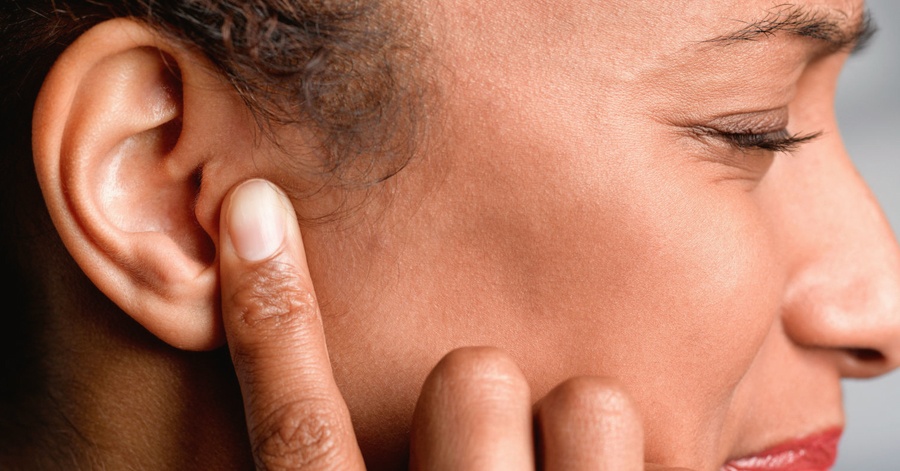While all types of ear diseases do not cause hearing loss, certain types of ear diseases and infections can — especially if left untreated. Hearing loss can be caused by a number of different factors, including noise exposure, injury, aging, hereditary, and some infections.
Sensorineural hearing loss is the most common type of hearing loss and is caused when something affects your auditory nerve. Another type of hearing loss is conductive hearing loss, which can be caused by certain types of ear diseases and infections.
Continue reading to learn more about the types of ear diseases that can lead to hearing loss and hearing complications.
Meniere’s Disease
Meniere’s Disease impacts your inner ear — particularly the endolymphatic sac, which is referred to as the labyrinth. This vital semicircular canal is tasked with processing sound signals to your brain and your perception of balance.
The symptoms of Meniere’s Disease are sweating, dizziness or vertigo, palpitations, and tinnitus, which is when you experience a hissing, whistling, ringing, roaring, or buzzing sound in your ear that isn’t produced externally. In addition to the other symptoms, you may also experience some degree of hearing loss.
How to Treat Meniere’s Disease?
Unfortunately, only the symptoms of Meniere’s Disease can be treated; but the underlying root cause may not have a cure. However, physicians regularly suggest or prescribe medications to alleviate the discomfort.
Some of the most common symptom-relieving solutions are diuretics, drugs that relieve nausea, and drugs that work to combat motion sickness. Stress management techniques and dietary changes may also be recommended.
Swimmer’s Ear
Otitis externa or Swimmer’s Ear is a type of ear disease characterized by the inflammation of the ear canal. It’s typically the result of moisture accumulating in the ear canal, which causes irritation. If it worsens, it can lead to infection, which can cause hearing loss.
People who have Swimmer’s Ear demonstrate show signs of redness in the ear canal as well as a non-smelly, clear discharge and itching. You may experience fever as well as inflamed lymph nodes.
How to Treat Swimmer’s Ear?
Swimmer’s Ear is most often treated by prescribed ear drops to address the infection and inflammation. The prescription should also work to restore the normal environment to your ear.
Otitis Media or a Middle Ear Infection
Although most people have never heard of otitis media, it’s the clinical name for an ear infection affecting the middle ear. It can cause a buildup of fluid that makes it hard for the ossicular chain and eardrum to work together in moving sounds to your auditory nerve.
Your ossicular chain in your middle ear is comprised of the three smallest bones in your body: the incus, malleus, and stapes. Each one of these bones is as tiny as a grain of rice.
How to Treat an Ear Infection?
Most physicians treat ear infections with antibiotics. If you have a history of ear infections, your physician may insert a tube in your eardrum to help the fluid drain.
Mastoiditis
Mastoiditis is a bacterial infection of the bone behind the ear, which is called the mastoid process. These types of ear diseases typically occur when an ear infection is inadequately or improperly treated and spreads into the surrounding bone. It can cause blood poisoning, deafness, brain injury, meningitis, or death if it’s not properly treated.
How to Treat Mastoiditis
Mastoiditis is a very serious type of ear infection that has to be treated with antibiotics intravenously.
Tympanosclerosis
Physicians suggest tubes for patients who have a history of ear infections to prevent tympanosclerosis, which explains the scarring or thickening of the typanic membrane. Tympanosclerosis and a perforated eardrum can adversely impact the mobility of your eardrum and negatively impact your hearing acuity. If your hearing doesn’t return to normal after treatment, your hearing professional and doctor may suggest hearing aids to remedy the unresolved hearing loss.
Certain Types of Ear Diseases Can Cause Conductive Hearing Loss
As previously mentioned, hearing loss that is the result of certain types of ear diseases and ear infections is called conductive hearing loss. Since a middle ear infection involves the buildup of fluid and the obstruction of your eardrum, it can thwart sounds from moving through your middle ear and result in conductive hearing loss. Wax buildup and a hole in your eardrum can also lead to conductive hearing loss.
Contact North Shore Hearing P.C.
If you suffer from hearing loss — regardless of the cause — the experts at North Shore Hearing can help! We offer decades of experience helping people like you experience and hear the world better.
As your local hearing experts, we offer a variety of hearing loss services and solutions. Our goal is to provide the highest level of treatment to anyone suffering from hearing loss.
Contact North Shore Hearing P.C. today for a solution to your hearing loss.

